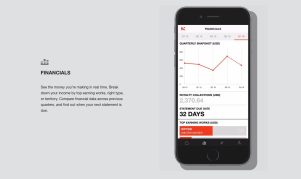When th e pop superstar decided to pull her entire catalog from Spotify in 2014, citing issues with how the company compensates artists, it looked like a massive blow for the world’s largest paid music streaming service.
e pop superstar decided to pull her entire catalog from Spotify in 2014, citing issues with how the company compensates artists, it looked like a massive blow for the world’s largest paid music streaming service.
More than a year later, Swift’s music is still nowhere to be seen on Spotify. But the streaming service experienced its biggest growth year ever in 2015, adding 29 million active users. There’s no specific star or revolutionary business plan behind this success: In large part, its growth is thanks to the Echo Nest, a music data start-up that Spotify acquired just months before Swift’s exodus. Echo Nest alums have conceived and shepherded virtually every major product update Spotify has rolled out over the last year, from Discover Weekly to its Running mixes. These features, centered on personalization, are part of Spotify’s big bet that crafting killer, user-friendly playlists will keep its followers loyal.






 ce the demise of the long-running-but-never-launched Global Repertoire Database (GRD) there has been a lot of debate over what comes next for digital rights reporting. The songwriter class action suits in the US against Spotify are the natural outcome of more than one and a half decades of failing to deal with the forsaken mess that is compositional rights in the digital era.
ce the demise of the long-running-but-never-launched Global Repertoire Database (GRD) there has been a lot of debate over what comes next for digital rights reporting. The songwriter class action suits in the US against Spotify are the natural outcome of more than one and a half decades of failing to deal with the forsaken mess that is compositional rights in the digital era. Revelator has developed a data management platform, with a dashboard to monitor individual or multiple tracks and artist playlist performance over time and across countries and cities.
Revelator has developed a data management platform, with a dashboard to monitor individual or multiple tracks and artist playlist performance over time and across countries and cities. hen IMPF was setup, it primarily had one item on its agenda: the Global Repertoire Database. Yet the GRD project, which would have created a single worldwide repository for all music publishing rights information, infamously collapsed in late 2014, by which time costs had hit £8m – a bill certain PROs were not willing to foot.
hen IMPF was setup, it primarily had one item on its agenda: the Global Repertoire Database. Yet the GRD project, which would have created a single worldwide repository for all music publishing rights information, infamously collapsed in late 2014, by which time costs had hit £8m – a bill certain PROs were not willing to foot. ’s rights society SOCAN has made a major technology investment with the purchase of Seattle-based B2B digital platform and data management company MediaNet. Terms of the acquisition were not disclosed.
’s rights society SOCAN has made a major technology investment with the purchase of Seattle-based B2B digital platform and data management company MediaNet. Terms of the acquisition were not disclosed.